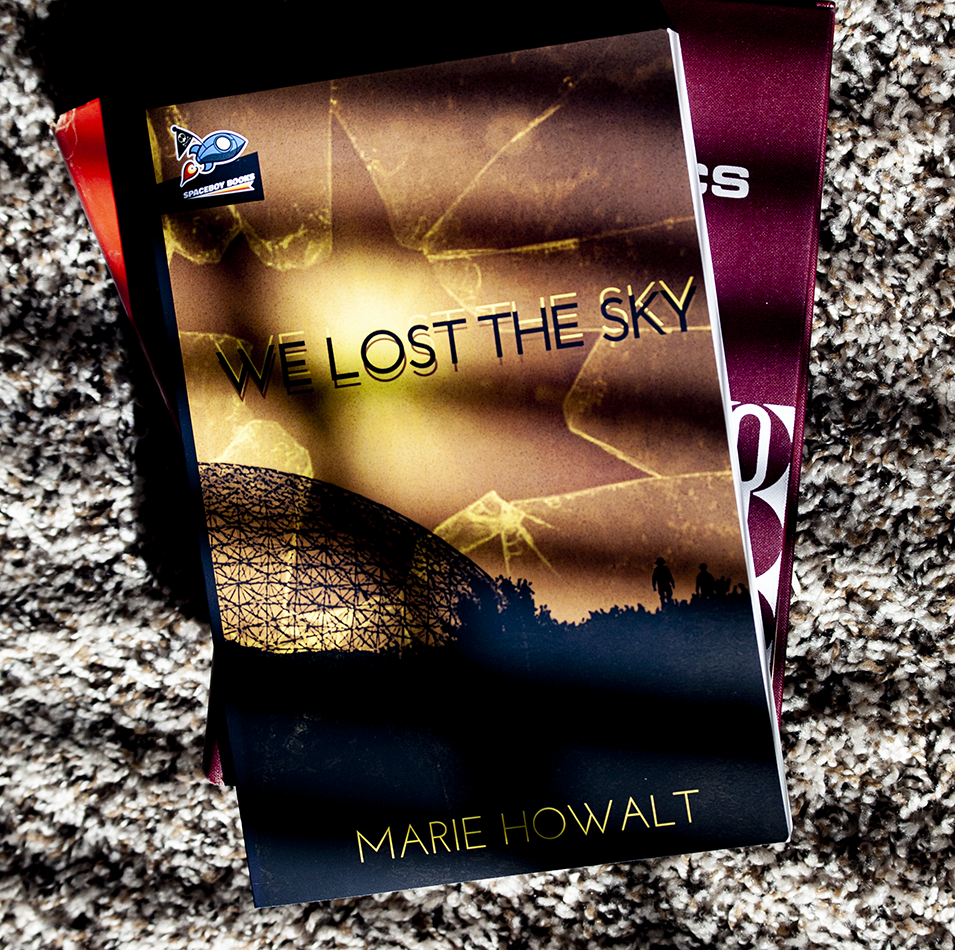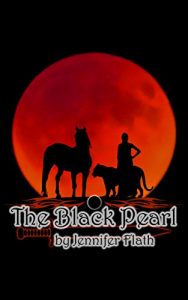
There is a hallmark of Howalt’s stories related to the concept of deep dive documentaries. With a quick search, you can find hours-long video essays that explore the arguments of unheard-of fandoms. You could become an expert at smelting iron ore for long-dead online games. Going into such a discussion, you are often being gradually introduced to an alien world. However, by the end? You’ve embraced that new world and see everything through its lens. You are rewarded with a deep understanding of hidden minutiae, yes, but that minutiae allows us to see broader scopes of how humans interact with others and the world at large.
So, that sort of deep dive exploration is key in this writeup. A writeup that is a review about the Moonless Series by Marie Howalt. Specifically, this covers Seeking Shelter, the second novel in that series. As a sequel, readers could be expected to know this world they’re diving into, but here it is entirely possible to plunge in context-free. However, there’s something to be said about getting everyone on the same page. Moonless, apropos of its name, is about the planet Earth after it lost the Moon. So, if you’re a fan of The Umbrella Academy, it’s kinda what would’ve happened if they hadn’t reversed blowing up the moon. Centuries later. In the future.
The scene is set just so: a handful of individuals are doing their best to survive on a crippled planet in a far-off future after cataclysmic events collapsed civilization and resources to the brink of extinction. You know, present day, but up ahead. Far up ahead. Beyond Thunderdome ahead.
So far ahead that this is a world that is unrecognizable to the reader and its inhabitants both. That is, if anyone had survived the apocalypse(s) that led to this future-present day. You have to remember something for its future to be unrecognizable. Otherwise, the past is unrecognizable and the stuff of myth and legend. Though, fortunately(?), someone did survive. Several someones, even. Obviously, they’re the ones that find things unrecognizable in Howalt’s Moonless future.
Anyway, same page. That’s what we’re heading toward, right? So. In an attempt to be both comprehensive and spoiler free, this sums up the first book: Some folks are living “normal” lives in the wasteland of future Italy, but things get turbulent when sentient robotic-humanoids, a wandering grump, the daughter of “civilization’s” leader, and a frozen-popsicle of a man dethaws. Through fate and faults, they wind up together long enough to go “WTF?” The ruling party of non-frozen humans don’t like change, so they’ve been oppressing progress and causing a lot of chafing for people that actually want to make things better. These four groups of chaos band together, cause the old-folks a rebellious fit, and then the rebellious ones leave to start their own colony in the ruins of a forgotten city.
Fun, right? Lots of fun. Fun is when everything goes wrong, right?
Now, Seeking Shelter takes place after all that. We’ve got a newly established colony of rebels, a tenuous relationship between them and surrounding settlements, and the also-tenuous relationship between the rebels and themselves. Everyone’s mostly settling in with new roles and placement in the world, but everyone carries some of the past with them. Like, jeez what a burden carrying it around. In fact, the past plays a central role throughout the story in casting doubt on the future or haunting us from embracing change. Just like real life!
“In this hostile, unsheltered world, more people could deplete the resources as easily as too many people inside the domes of Florence … could prove a challenge to the balanced eco systems within the domes.” – Teo
Speaking of the past, a lasting gut-punch of Seeking Shelter is caused by a reminder of our present. Climate change is a real deal that’s getting more damning with each passing day, and this is a story that speaks to those dangers and how careful we have to be. In both of the currently-released Moonless books, we see the results of a near-destroyed climate as an edge case of too-far-gone. And as seen in We Lost the Sky, we also get a great look at the struggle of caring required to combat climate change. Teo is a great character that seeks to share and cooperate toward a future of shared resourcing. She’d be worth voting for, no doubt. We could all learn from her message of crafted communication that helps us all toward a stronger whole.
” It was too soon to die.” – Esmia
And, real quick, while we’re still talking about the past—really meaning the present—let’s talk about masks and sickness. You know, for survival. And belief, both how it affects and interferes with survival. There’s not a direct one-to-one comparison between religion and superstition, but there are connections there. Of course, the word “superstition” has a baked-in negative connotation, but that’s kind of the point in bringing it into the conversation.
See, Seeking Shelter spends a good deal of time ramping itself up to a unifying thread. That’s where Howalt’s hallmark deep-dive feel comes into play. Surround the reader in the world, and then, background set, unleash the details and the ideas that would be chaff without the context. The stage isn’t just set, it’s been constructed into a grand unifying experience.
In this story, that experience congeals to—sometimes painfully so—highlight the current struggles of our Earth. After all, moon or not, we are still just people. As mentioned, one of those struggles has to do with climate change. How do we live in this crazy turbulent world when everything keeps breaking apart? Another of those struggles is infections and outbreaks and superstitions around sickness. There is a really great ideal within Seeking Shelter about building acceptance while banishing the parts of us that breed hate and fear. A lovely wish is an idea that spirituality can be a strength that binds us together, but only if we can reject those beliefs that harm the people around us.
Because what is a human but piles of belief wrapped in biomatter? Or, artificial bodies too, in the case of Seeking Shelter. And that’s displayed time and time again with the way Howalt shows characters struggling with those critical pieces of self. As people do. By pitting those values against a rock and hard place, each character is fleshed out so that they breathe the same strengths and weaknesses as any of us. It’s a quality within everything written by Howalt, and it only gets better with each new publication.
But in Seeking Shelter, there is a full array of humanity on display. People we want to be. People we are ashamed of being. We see the failures and successes of hope, fear, ambivalence, and trust.
Really, it’s striking, admirable, and disheartening to see the ways we act as a collective. It’s on the news every day right now, and Seeking Shelter wraps up our current situation in a way comparable to the 1978 Dawn of the Dead / Zombie or the original Robocop. It’s a mirror that condenses humanity like some solar concentrator into a painting of us as Dorian Gray. There are misty-eyed moments in this book that are for the characters and their struggles, and there are others that are painful because damn humanity—that’s why. Damn them all.
But it’s not all gloom either. There is hope in abundance here. There are moments that caused little chortles and snickering laughs. Luca—just like always—has a presence similar to someone sneaking to the refrigerator at two in the morning to sneak a fistful of cake. The steadfast determination in Renn, in Mender, are a reminder that we have wells of strength from those around us. The heart of Teo, a person too invested that feels too much, shows the value in doing our best and forging ahead. The wary dream in Esmia is a push to continue navigating loss and the possibility of a true home.
And really, it’s because of the gloom that those variations of dreaming shine so brightly. The gloom of crisis in this story, and the gloom around us in the present. Yes. Things are bad, but if we bind ourselves together? We can make a better future.
Seeking Shelter is so damned nice because of that message. Because its characters, even bitter old (young) Luca, and grumpy-faced Renn, face down their fears and reluctance to keep working together. This story centers its progression around hope and trust. With that kind of core, you have to know the world, know the stakes, and understand the resources effecting the characters. Howalt crafts those elements expertly, draws them together so that they will affect one another, and then injects a crisis to show how the puzzle pieces react. The result is an aching message that shows that trust and hope are some of the greatest risks to take, but they’re the risks that reward us the most.
Marie Howalt’s Seeking Shelter is available at Amazon or through SpaceBoy Books.


